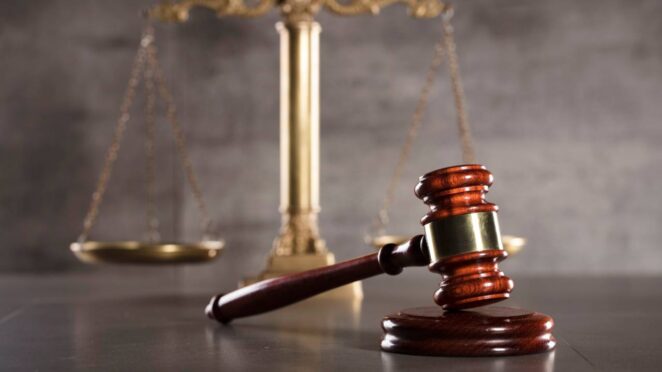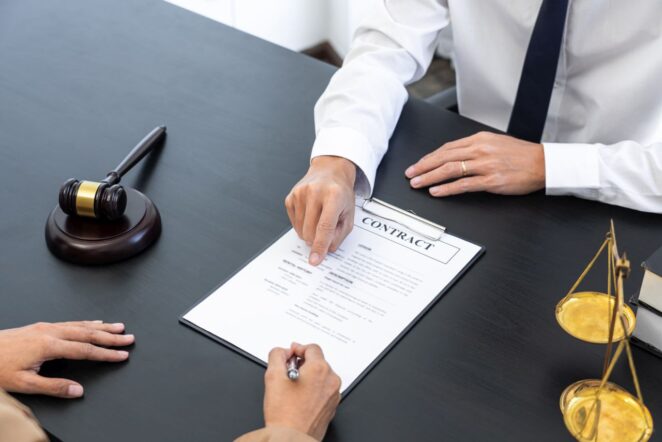Navigating the debt collection process can be overwhelming for businesses and individuals alike. When debts go unpaid, hiring an attorney specializing in debt collections becomes crucial.
This guide will walk you through the best practices for hiring the right attorney to help recover what’s owed, ensuring a smooth and efficient process.
Why Hire an Attorney?
Debt collection involves legal complexities that require professional expertise. An attorney for debt collections can:
- Provide legal representation in court.
- Ensure compliance with federal and state laws.
- Increase the chances of successful debt recovery.
- Offer strategic advice tailored to your specific situation.
With these benefits in mind, let’s explore the best practices for hiring a lawyer to handle your debt collection needs.
1. Assess Your Needs
Before starting your search, evaluate your specific debt collection needs. Consider the following:
- Type of debt ─ Is it consumer or commercial debt? Different types of debts may require different approaches.
- Amount owed ─ Larger debts might justify the cost of an attorney more than smaller ones.
- Debtor’s location ─ Laws vary by state, so you might need a lawyer familiar with the debtor’s jurisdiction.
By understanding your needs, you can narrow your search to attorneys who specialize in the relevant area of debt collection.
2. Research Potential Attorneys

Begin your search by researching potential lawyers. Use these strategies:
Referrals
Ask for recommendations from colleagues or other businesses who have used debt collection attorneys.
Online Directories
Websites like Martindale-Hubbell and Avvo provide listings and reviews of attorneys.
Bar Associations
Check with your state or local bar association for a list of qualified lawyers.
Compile a list of potential candidates and delve into their backgrounds to assess their suitability.
3. Evaluate Experience and Expertise
Experience is critical when hiring a debt collection attorney. Consider the following factors:
- Years of practice ─ Look for attorneys with substantial experience in debt collections.
- Specialization ─ Ensure the lawyer specializes in debt collection law.
- Success rate ─ Ask about their track record in recovering debts.
Experienced attorneys will navigate the complexities of debt collection more effectively, increasing your chances of success.
4. Verify Credentials

Confirm that the attorneys on your list are properly credentialed. Check:
- Licensing ─ Ensure they are licensed to practice law in your state.
- Disciplinary records ─ Look for any history of disciplinary actions with the state bar association.
Credentials provide a baseline of trust and reliability, assuring you that the attorney is qualified and reputable.
5. Review Client Testimonials and References
Client testimonials and references offer insights into an attorney’s professionalism and effectiveness. Look for:
Read reviews on platforms like Google, Yelp, and legal directories. Ask them for references from past clients. Positive feedback and satisfied clients are indicators of a trustworthy and competent lawyer.
6. Understand Their Approach and Strategy
Each lawyer may have a different approach to debt collection. Discuss their strategies to ensure they align with your goals. Consider:
How frequently will they update you on the case? Are they known for a more aggressive or a more conciliatory approach? Do they charge a contingency fee, hourly rate, or flat fee?
Understanding their approach helps ensure that their methods match your expectations and needs.
7. Schedule Consultations

Narrow down your list to a few candidates and schedule consultations. Prepare to discuss:
- Your case ─ Provide details about the debt and the debtor.
- Their experience ─ Ask about their experience with similar cases.
- Expected outcomes ─ Inquire about potential outcomes and timelines.
Consultations allow you to gauge the lawyer’s expertise, communication style, and whether they are a good fit for your case.
8. Ask the Right Questions
During consultations, ask critical questions to assess the attorney’s suitability. Examples include:
What is your success rate with debt collection cases? How do you handle difficult debtors? Can you provide a timeline for my case? What are your fees, and how are they structured?
Asking the right questions ensures you gather the necessary information to make an informed decision.
9. Evaluate Communication and Responsiveness
Effective communication is vital in legal matters. Assess the lawyer’s communication skills by considering their responsiveness, clarity, and professionalism. Determine if they respond promptly to your inquiries, explain legal terms and processes in a way you understand, and interact with courtesy and respect.
Strong communication skills ensure that you stay informed and confident throughout the debt collection process.
10. Consider the Cost

Legal fees can vary significantly. Understand the cost structure before hiring an attorney. The lawyer gets paid only if you recover the debt. You pay for the actual time the attorney spends on your case. A predetermined fee for the entire case.
Consider your budget and the potential return on investment when evaluating cost.
11. Make Your Decision
After completing consultations and evaluating each attorney, make your decision based on their experience and expertise, ensuring they have a proven track record in debt collection. Consider their communication skills, choosing a lawyer who communicates effectively and keeps you informed.
Evaluate the cost, selecting an attorney whose fees align with your budget and expectations. Making an informed decision increases the likelihood of successful debt recovery.
12. Formalize the Agreement
Once you’ve chosen a lawyer, formalize the agreement with a written contract. Ensure the contract includes:
- Scope of work ─ Clearly define the attorney’s responsibilities.
- Fee structure ─ Detail the agreed-upon fees and payment terms.
- Timeline ─ Include estimated timelines for key milestones.
A detailed contract protects both parties and sets clear expectations.

The Bottom Line
Hiring the right attorney for debt collections can significantly impact your ability to recover owed debts. By assessing your needs, researching potential attorneys, evaluating their experience and credentials, and understanding their approach, you can make an informed decision.
Effective communication, cost considerations, and a formal agreement further ensure a successful partnership.
Debt recovery is a complex process, but with the right attorney by your side, you can navigate it confidently and efficiently. Take the time to find a lawyer who meets your specific needs and aligns with your goals, and you’ll be well on your way to recovering what’s rightfully yours.



